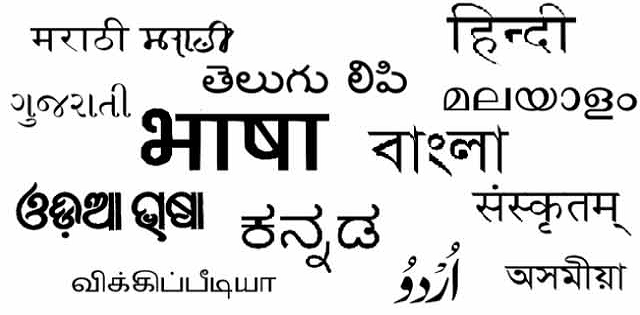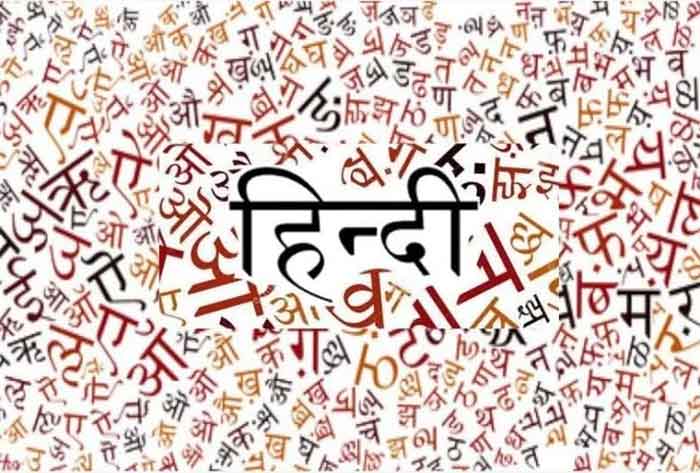Pankaj Pushkar in conversation with Pramod Ranjan

Pankaj Pushar: What has been your relationship with languages during your educational journey? How do you relate to different languages? Which language(s) do you use in your different activities?
Pramod Ranjan: I was born into a family which spoke the Magahi language. I spent my childhood at my maternal grandparents’ place. My Nana’s family was Arya Samaji. My Nana subscribed to many magazines including Chand, Madhuri and Sarawati. By the time I could read and understand literature, these magazines had ceased publication. But their old issues were carefully preserved by my Nana. He insisted upon speaking and writing ‘pure’ Hindi and used to teach Hindi grammar, idioms and sayings to me. And that was not done informally. Every day he used to hold a Hindi class for me.
These magazines and my Nana’s classes aroused interest in Hindi in me. One of my high school teachers enhanced that interest.
My mother is a teacher. I talk with her in both Magahi and Hindi. When the conversation is formal, it is often in Hindi but when it is between an affectionate mother and a loving son, it is in Magahi.
PP: Two official languages – Hindi and English – and scores of people’s languages, including Adivasi languages, are used in the field of education and knowledge. What is the relative position of these languages in colleges and universities? Are they equal or some are placed over the others? What is your experience?
PR: In colleges and universities in the Hindi belt, discrimination between Hindi, English and other dialects and languages is very apparent. English is at the top, followed by Hindi. Other dialects and languages are simply ignored – they are almost ‘untouchable’. Our educational institutions do not merely promote this discrimination; they are the creators of this discrimination. I don’t know much about south India but this is true of the Hindi belt and the north eastern states.
PP: Does this linguistic discrimination affect the confidence levels, the participation and careers of students? What does your experience say?
PR: There is no doubt that it affects the students. I have been witness to several heart-rending incidents related to this. May be, I will write about them in the future.
PP: Do colleges and universities try to end this linguistic inequality? Or do they perpetuate and promote it?
PR: As I said earlier, schools, colleges and universities not only deepen these linguistic inequalities but they often give birth to them in many ways. Just think how these inequalities were born. You will discover that our educational institutions created them. Our educational institutions, by their very nature, create many kinds of inequalities. Linguistic inequality is only one of them. Our institutions do not see all forms of knowledge at par. They promote the knowledge which is the monopoly of the elite class. They look down upon the knowledge which is the heritage of the majority, of the commoners, of our country. In fact, they employ different means to prove that it is useless. That is why; the path of the students from the Bahujan classes is strewn with thorns.
PP: Did you ever feel humiliated or discriminated against or not treated as an equal because you did not have command of English or Sanskritised Hindi?
PR: I don’t think I need to comment on what kind of discrimination speakers of Indian languages have to face because of their poor command of English.
I have been a victim of this. I want to share my personal experience. I edited a bilingual (English-Hindi) magazine for about a decade. The magazine was primarily known due to my association with it i.e. people believed that I was its editor. But that was not so. I was never its editor, at least on papers. I was designated ‘Hindi Editor’. I wanted that my name should be published as the ‘Editor’. But the proprietors won’t agree. They made me ‘managing editor’ but never the ‘editor’. And this was not only about language. It also shows how communalism and language sometimes come together to play a sinister role. The proprietors were Christians and they wanted a Christian editor. After my departure, they chose to handover my job to an English-speaking Christian whose knowledge of Hindi was next to nothing. He was far from bilingual. His knowledge of Hindi was nowhere near my knowledge of English. But he was an English-speaker and a Christian. And that was why, in the eyes of the proprietors, he was competent and eligible for the job. As I was a Hindi-speaker, I was ineligible.
At the same time, common people and scholars do appreciate your work irrespective of your language. But there are technical issues. And these are not minor irritants. Language does not come in the way of your work. But if you cannot work in English, it does impact the assessment of your competence.
As for Sanskritised Hindi, I have no personal experience but I feel that if you say things in simple language, the editors of Hindi literary magazines don’t attach much value to it. A sprinkling of Sanskritised words makes your writing worthy of publication.
PP: There are some who believe that the words of Urdu and regional languages which have become a part of Hindi should be replaced with their Sanskrit equivalents. In your view Sanskritisation of Hindi would be a positive step or a negative one?
PR: To say that Hindi should be purged of the words of Urdu and regional languages is an asinine idea. But yes, it cannot be denied that Sanskritisation would help make Hindi the language of knowledge. If we have to make Hindi the language of knowledge, it needs to be have both folk and classical elements. Only classical elements would make it hypocritical. And only folk elements would reduce it to a language which is suitable only for routine conversations.
PP: How do you relate to the English language? Do you fear it? Do you find it your own? Do you love it? What is the place of English as the language of knowledge in your life?
PR: Of course, I love English. Whether that love is born out of compulsion or because it is the source of knowledge, I cannot say. But on reflection, I think the former is truer.
(Pramod Ranjan is a writer, a journalist and a teacher. He has edited many newspapers and magazines and is known in the Hindi world for his ideological writings. Pankaj Puskar is known for his scholarship and his social activism. He has taught in Delhi University and also been a member of the Delhi Assembly.)












































